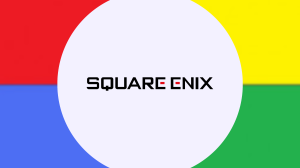Wizards of the Coast’s new virtual tabletop service for Dungeons & Dragons apparently has a name, one that should be familiar to many fans. In a recent article showing off the new Black Dragon design for the Dungeons & Dragons 2024 rules revision, Screen Rant revealed that the long-gestating VTT being developed by Wizards of the Coast is called Sigil. While discussing the pre-order extras for buying the 2024 Core Rulebooks from D&D Beyond, Screen Rant mentions the “Sigil Gold Dragon Mini” that players can use “when Sigil enters Closed Beta later this year.” ComicBook has reached out to Wizards of the Coast for confirmation. We’ll note that D&D Beyond still refers to the VTT as the “upcoming 3D virtual tabletop” when discussing the same pre-order bonuses. [Update: It’s been pointed out that a now closed job listing for a community director role previously referred to Sigil as a “codename” for the new VTT, so this name may not be finalized.]
Videos by ComicBook.com
Sigil (pronounced Si-Gill) is the name of the infamous City of Doors that connects all the various planes of the D&D multiverse together. Described as being both in the center of D&D’s great wheel (which comprises the various planes) and also nowhere all at once. Ruled by the Lady of Pain, the city serves as a nexus where demons, angels, and various other creatures all interact with each other in a sort of enforced harmony. Sigil, of course, is at the heart of the Planescape campaign setting, which explored the various planes and also the philosophies that held sway in each of them.
Assuming the name is accurate, Sigil is interesting for a few reasons. The obvious implication is that the new VTT service is meant to be at the heart of Dungeons & Dragons, providing a digital tabletop service that syncs up with D&D Beyond and extends Hasbro’s influence of Dungeons & Dragons beyond simply publishing books and controlling the game’s official canon. It’s also another sign that the new VTT (which was first announced back in 2022 and has been periodically mentioned since) is nearing completion. The service is built using the Unreal Engine and is supposed to provide a seamless way to play Dungeons & Dragons with friends digitally. While we know the service includes customization options and some streamlining of game management (such as providing ranges of spells or tracking damage of various foes automatically), what’s still unclear is how much players are expected to pay for the service and how it will function with D&D Beyond, which is seen as a critical tool by many D&D players.








